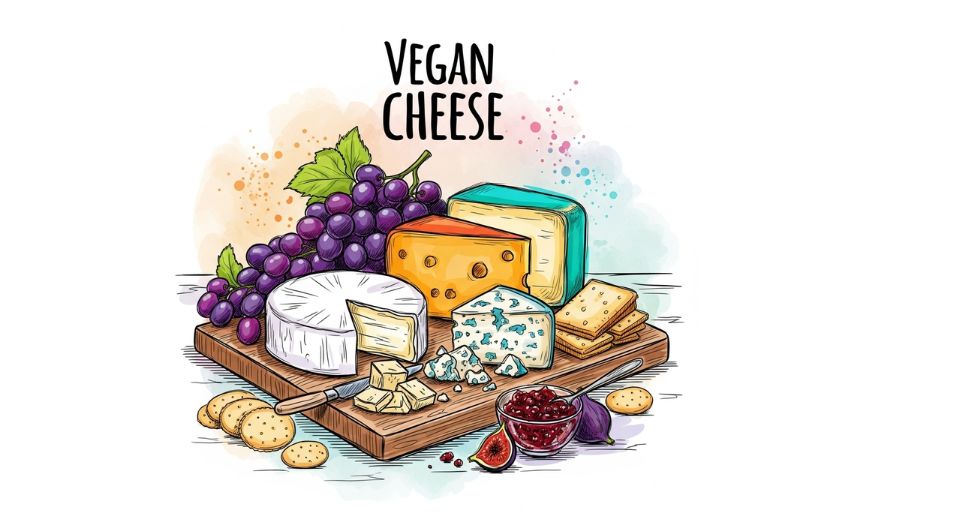
Aug 05, 2025

The newest publication made available by Metastat Insight illuminates the developing scene of the Global Vegan Cheese Market. Based on emerging trends within the plant-based industry, the report explores the way that this particular niche of the market is developing in the context of evolving dietary trends and methods of production. In contrast to standard summaries, this collection eschews superficial generalities and instead explores the textures of change affecting manufacturers, distributors, and consumers.
This market has expanded way beyond its initial connotations of specialty grocers or niche food aisles. Over the past few years, manufacturers have not only sought to replicate the taste and feel of dairy-based cheese but also to develop something fundamentally different in nature and gastronomic worth. The activity undertaken by pioneers in this domain is not merely about imitation it is about reimagining what customers have come to anticipate in cheese alternatives. It's no longer about merely mimicking a dairy item; it is about developing products that are in their own right. As more food formulators venture into this space, the sophistication of the marketplace has grown.
Whereas formerly controlled by soy- and nut-based offerings, newer players are experimenting with less traditional ingredients, drawing from everything from legumes to root vegetables to algae. This has created a wave of innovation that goes beyond the base ingredients themselves and even to manufacturing methods. Fermentation steps, maturation processes, and microbial cultures are being utilized with skill previously reserved for conventional cheesemaking. Particularly significant is the way regional tastes shape production styles. Manufacturers in different parts of the world are responding not only to dietary trends but to cultural expectations of flavor, texture, and appearance.
Some regions are showing heightened demand for products that can seamlessly fit into their established culinary traditions, while others are leaning into bold reinterpretations of cheese entirely. This dynamic is fueling a variety of products which not only demonstrate technical creativity but also a profound sensitivity to the audiences they address. In this environment, channels of distribution are also changing. From producer to consumer, the journey has been altered, as retail settings and online platforms assume more prominence in product exposure.
Foodservice allies have started incorporating vegan cheese more seamlessly into their offerings, producing additional normalization momentum. What was previously a concession is being rebranded as a considered, high-end substitute that harmonizes with modern eating patterns. One other characteristic feature of the market right now is the growing coordination among food scientists and culinary experts. Chefs are sitting down with product developers to shape formulations in a manner that is not just technically practical but also gastronomically valuable. That has resulted in vegan cheese formulations that are not only complex in taste but also multifaceted in use, and therefore not just an alternative but a choice option in some types of culinary application.
The supply base for this segment has also been recalibrated. Sourcing strategies are being redesigned for both quality and consistency at the expense of ethical considerations. This change has created closer engagements between producers and raw material suppliers with greater transparency and traceability taking center stage. These features are now becoming mandatory as consumers not only desire plant-based alternatives but also want to ensure that the alternatives are congruent with overall values.
Packaging trends are also influencing consumer attitudes. Presentation of vegan cheese has evolved considerably with design that highlights the craftsmanship and authenticity of the product. Brands are more and more focusing on storytelling explaining the journey of creation, source of ingredients, and sustainability standards thus making the consumer more emotionally invested.
Although momentum certainly is building, there are still setbacks that moderate the trajectory of the market. Technical issues in recreating meltability and stretch, for example, continue to be hot topics in product development facilities. Cost models are also being examined, with firms looking to bring their products into more affordable reach without compromising quality. But these hurdles are being addressed with a degree of resolve that speaks to long-term investment and dedication to refinement.
Interestingly, consumer behaviour is driving product positioning in more subtle ways. There is a move away from highly health-claim-based marketing towards positioning that emphasizes taste and satisfaction first. That means the appeal of the product is becoming more mature; it is no longer defined by dietary restriction, but now by choice and preference. This realignment has provided a window into larger market segments and new demographic appeal.
Finally, the report by Metastat Insight retains a moment of change in the Global Vegan Cheese Market. What appears is not a snapshot of the trend but a nuanced rendering of a market that is realigning expectations on various sides from innovation and supply chain to marketing and consumption. It offers a market that is not static or reactionary but rather one that is establishing its own identity during a rapidly evolving food industry. Within this context, the history of vegan cheese is more than an economic endeavour it is a declaration of innovation, flexibility, and vision.
Drop us an email at:
Call us on:
+1 214 613 5758
+91 73850 57479